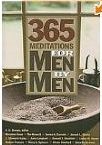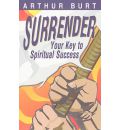6/1 So what is your place in the Church?
So far in this series on Christian Foundational beliefs, we have looked at Christian concepts about Jehovah, Creator God and the Father of love. Next, we went onto the Creation of the spiritual world and the fall of Lucifer, the angel of Light. Following that, we discussed the Creation of Earth, the Garden of Eden and then onto Adam and Eve. We saw the results of their rebellion against their Creator and the fall of the human race because of this first couple’s actions.
Our Loving Creator did not leave us lost as His Rescue Plan included ‘becoming flesh….’ So He could pay the price to bring us back to Him. We saw that Jesus, the Christ proved by His life, death and resurrection that He was indeed the way back to the Father.
Next we talked about another major part of being a ‘Jesus Follower’ – the Person and work of the Holy Spirit. He was sent by Jesus on the Day of Pentecost, 50 days after Jesus’ resurrection, to bring us to know our Creator and to hear His voice.
The arrival of Jesus into human existence signalled a new era in God’s dealings with mankind. God intervened in a very personal way and made it unmistakably clear that He was and is on our side. It was / is all presented and worked out in the life, death and resurrection of Jesus.
Men and women believed that Jesus was God and His death did not stop His message, but promoted it. Soon they realised that He planned to ‘live in them’. To their surprise, they found themselves living in a world where God called all the shots. He was to have the last word on everything – quite literally the first and last word. Everything had to be re-examined, re-imaged and re-centred around Christ. This is still our challenge today.
 Of course all this information is to lead to a choice to follow Jesus, which brings growth and change; that’s a normal part of being a Christian! We looked at the basics of Christianity: Repentance, Baptisms – Water Baptism, the Baptism of Fire and the Baptism with the Holy Spirit. Along the way, we laid out several personal worksheets so you could see where your journey has taken you.
Of course all this information is to lead to a choice to follow Jesus, which brings growth and change; that’s a normal part of being a Christian! We looked at the basics of Christianity: Repentance, Baptisms – Water Baptism, the Baptism of Fire and the Baptism with the Holy Spirit. Along the way, we laid out several personal worksheets so you could see where your journey has taken you.
What do we do when we become the New Creation? How do we express our encounter with God? Our life will never be the same again, so how do we let others know that we have ‘changed sides’? Why do the followers of Christ, Christians, do the things that they do?
In this next part of our series on the Christian Foundations, we want to look at what the Lord Jesus died for …. the church, His body and future bride!
In this post we continue to discuss things that Christians are called to do: Communion, Tithing, Prayer, Praise and Worship, gathering together, becoming members of One Body, the Gifts of the Spirit and finding your place in the Body of Christ. Some of this list has nothing to do with becoming a Christian but everything to do with being a Christian.
B. JESUS IS COMING BACK FOR A BRIDE!
One of the important messages we have learned in this whole series is: “Daddy isn’t mad at you any longer. It is safe to come home now!” It has always been part of God’s agenda to bring a Family to Himself. The Old Testament is full of this principle. We see His plan for a special people in Abraham, Isaac and Jacob and in setting Israel apart for Himself.
However, because of the hardness of their heart., these special people were pictured as the ‘Unfaithful Bride of Jehovah’. It took the years in captivity to Babylon to remove this unbelief and prepare His people for the coming of their Messiah. Yet even then, the most failed to recognise Him.
So now, some 2,000 years later, Jesus is coming back for a collection of people who are looking for Him. God wants these people to be so intimate with Him; He describes them as a ‘bride’ – a symbol of purity, beauty and maturity. Jesus, as the head of the Church, is preparing this bride for Himself through the work of the Holy Spirit.
C. SO JOINING THE FAMILY OF BELIEVERS – THE CHURCH
1. What is the ‘Church’?
When we speak of the Church (Greek: ekklesia), or the ‘called out ones’, we mean an assembly of people, a group of believers who have chosen to follow Jesus. The church has been here since the day of Pentecost, 1 Peter 2:9. The church is to be that righteous ‘nation’, who would keep God’s truth in their hearts rather than just follow laws, Romans 2:28-29, Galatians 6:15-16.
Jesus never meant for ‘the church’ to be a building or even another organised system of religion. The church was and is a local community of believers, Acts 8:1, 13:1, 18:22, 20:17, Romans 16:1, 1 Corinthians 1:2, Colossians 4:16. 1 Thessalonians. 1:1, Revelation 2-3. It has also become a global, worldwide group, Matthew 16:18, 1 Corinthians 10:32, Ephesians 5:25, Colossians 1:18.
The church consists of those who obey Jesus – regardless of nation, race or culture. They have become united as ‘a new thing’ that God created in the Earth, filled with His New Creation people. They are the ‘body of Christ, the Bride of Christ, the living temple of God’.
Sad to say, not everyone who enters into a church building is part of the church, the body of Christ and the Bride. It especially takes a deeper heart commitment to become part of the Bride.
2. As we look around us, we can see three main approaches to living in the Lord’s Kingdom:
a. Through Rituals where Christian life is reduced to ceremonies, handed down by man, without touching the heart,
b. Through Revelation, where we receive the Truth by the Spirit, producing Faith and enter into the things of God by the ‘aha’ knowing,
c. By Relationship with Him, fellowshipping with Jesus and others in the Faith.
3. We joined His Church when we ‘changed sides’ and began to follow Him.
Some groups require membership by a formal ceremony. Others require you to take formal lectures and be ‘confirmed’, allowing the participant to join and take communion within their group. Still others do not require membership at all, or consider it optional.
True membership in the Church Universal begins with accepting Jesus as the Christ and continues as we learn what “in His Body” means. We become part of One Church, acquiring a new spiritual family and new responsibilities, Ephesians 2:19-22, Colossians 1:16, 1 Peter 2:9-10.
4. Acts 2:42-47 shows us the ‘job description’ and list of actions of the early Church.
They usually met in homes: Romans 16:5, Colossians 4:15, Philippians 2. They held worship services: Acts 20:7-11, 1 Corinthians 14:26-28, Hebrews 10:25. The Holy Spirit’s gifts were used in the church body, 1 Corinthians 12:4-11.
 The groups shared in two main symbolic actions called ‘Sacraments’: They expected everyone to be baptised – Acts 18:8, 1 Corinthians 12:13. They shared one common special meal called ‘The Lord’s Supper’, often called Communion or ‘Eucharist’ – Acts 2:42, Acts 20:7, 1 Corinthians 11:23-33
The groups shared in two main symbolic actions called ‘Sacraments’: They expected everyone to be baptised – Acts 18:8, 1 Corinthians 12:13. They shared one common special meal called ‘The Lord’s Supper’, often called Communion or ‘Eucharist’ – Acts 2:42, Acts 20:7, 1 Corinthians 11:23-33
The early church experienced unity as they were baptism into one Body – Romans 12:5, Ephesians 4:13. They recognised they were one flock with one Shepherd – John 10:16. They enjoyed being together and called it ‘Fellowship’: Acts 2:42, 1 John 1:3-7.
It was common that they helped one another: Acts 4:32-37, 2 Corinthians 8:1-5. They joined together to share their faith and to ‘evangelise’ others for the Lord: Romans 1:8, 1 Thessalonians 1:8-10.
They grew in numbers: Acts 4:4, 5:14, 16:5. They were organized: Acts 14:23, Philippians 1:1, Titus 1:5-9, 1Timothy 3-15. The church has offices and a government system. The Apostles and prophets form the foundation of the church, but Jesus Christ is to be the chief cornerstone, Ephesians 2:20.
The early church had problems: 1 Corinthians 1:11-12, 11:17-22, Galatians 3:1-5. They exercised Discipline: Matthew 18:15-17, 1 Corinthians 5:1-5, 2 Thessalonians 3:11-15, Titus 3:10-11.
During the first century, this new group of people called the Church turned the know world upside down as they shared their faith. Thousands and thousands were hunted down, tortured and died to hold onto what they knew was truth. So what has happened to ‘the Church’ today that we have drifted so far from the shared unity, shared love that some even say: ‘Jesus I love but I can’t stand the church!’ Jesus’ bride was not meant to be one special denomination, but many groups joined together by the One Spirit.
5. What are the Reasons for the Church’s to Exist?
There are four main reasons why Jesus wants ‘the church’ to exist:
a. To minister to the Lord, Psalms 29:1-2, Matthew 4:10, John 4:20-24, Revelations 4:11. This means our job is to glorify, to worship, to relate to and give pleasure to God. “The chief end of man is to glorify God and to enjoy Him forever.” Therefore our first aim is upward connection and then outward in service.
b. To edify and minister to other believers, the Saints, Ephesians 4:9-16, Colossians 2: 7, 1 Corinthians 12. Jesus set in place what is called ‘The fivefold ministry’ of Apostles, Prophets, Evangelists, Teachers and Pastors. These are given as ‘gift people’ are to educate the body of Christ.
c. To reach out to the sinners, to face outward to a lost world and those who have wandered away, Matthew 24:14, 28:18-20. Sad to say, in 1994, 94% of ordained ministry reached the 10% in the World who speak English, however only 6% reach the 90% non-English speaking world, (The church in the NT, page 300.) I doubt if that has changed much in our world today.
d. To reflect God’s light and authority, to conquer Satan and his kingdom, to bring about his final downfall, Matthew 16:15-20, Ephesians 6:10-20.
The Lord Jesus meant for His Bride, the church to be a dynamic demonstration of His marvellous wisdom and perfect plan of reconciliation. He has united two hostile, diverse groups – the Jews and the Gentiles – into one body of people, along with the pagans around them. We have been saved and united by Christ’s blood, Acts 20:28, Ephesians 5:5:26-27.
“His intent was that now, through the church, the manifold wisdom of God should be made know to the rulers and authorities in heavenly realms…” Ephesians 3:10.
D. IN CONCLUSION
When you look at it this way, the church becomes something that is special and worth fighting to hold onto. The enemy certainly is working to create disunity, disharmony and plans to disrupt God’s plans about the church. When we work against the Lord and against the church, as imperfect as it is, we aid the enemy in his work.
 One of things we are called to do is learn to forgive or to confront those who offend us and the flock of God. Having been through 4 different church situations, with 5 or more different major church hurts involved, I can truly speak about this situation. It is to this group of people that I would say “Jesus died for the group of people He called the church. Please don’t toss out the baby with the bath water and walk away from His beloved people. Stay with ‘the church’ and work toward better unity and communication.”
One of things we are called to do is learn to forgive or to confront those who offend us and the flock of God. Having been through 4 different church situations, with 5 or more different major church hurts involved, I can truly speak about this situation. It is to this group of people that I would say “Jesus died for the group of people He called the church. Please don’t toss out the baby with the bath water and walk away from His beloved people. Stay with ‘the church’ and work toward better unity and communication.”
We know this can be a challenge in the midst of church hurts but it is worth the effort and learning process to continue.
Susanne Fengler, Blog Author
www.christianfoundations.jesus-treeoflife.info
Tags: Purpose of the church
Filed under: Foundations of our Faith





Leave a Reply